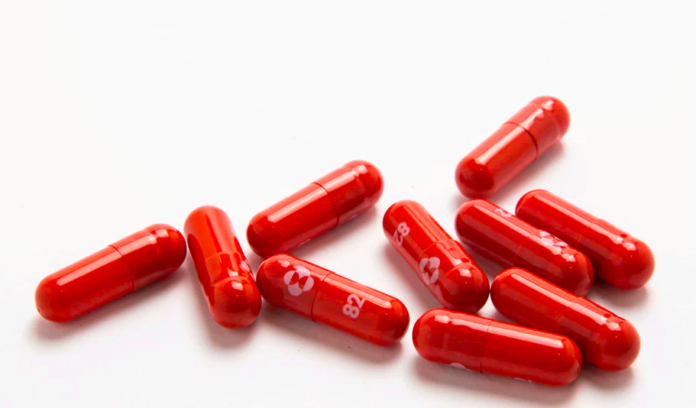by Sophie Zhu
On Thursday, December 31, 2021, the Food and Drug Administration (FDA) authorized a five-day, at-home treatment option for patients 18 and older who are at high risk of severe COVID-19 and “for whom alternative COVID-19 treatment options authorized by the FDA are not accessible or clinically appropriate.”
This pill, molnupiravir, which is developed by Merck and Ridgeback Biotherapeutics, cut the risks of hospitalization and death in high-risk patients by 30% if given within five days of symptom onset. Once consumed, it introduces mutations to the virus that interfere with the enzyme the virus depends on to replicate itself.
Such a treatmeant would be in greater supply and of more convenience than the other potential at-home options, such as a monoclonal antibody treatment that must be given by intravenous infusion and is in short supply. While only 65 thousand treatment courses of Pfizer’s antiviral drug, Paxlovid, which was authorized the day prior, were dispatched in its first week, Merck plans to deliver up to a million doses in the next two weeks. Paxlovid stubs hospitalizations and deaths by 88%, but it can be dangerous for those with severe kidney and liver issues, a health demographic molnupiravir is safe for.
However, it is not recommended for use during pregnancy and is only proposed to adults because it can interfere with bone and cartilege growth.
The primary concern with molnupiravir, though, is its high potential for breeding new mutations of COVID-19. Although FDA reviewers found such a risk to be low, a Stanford biochemist noted that, “Someone taking that drug is cheating themselves out of the opportunity to take a better, more effective drug. It’s almost certainly going to create viral variants that escape.”
According to the data, viral mutations were slightly more frequent in those treated with molnupiravir, but the director of the Officer of Infectious Diseases at the FDA asserted that the agency concluded that other benefits of the drug outweighed this hypothetical risk.










